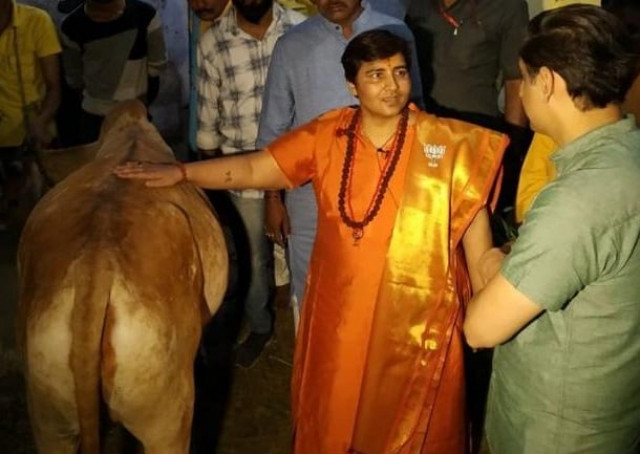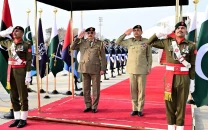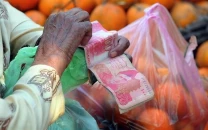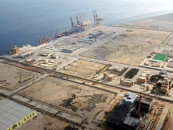BJP candidate believes cow urine, dung can cure cancer
Sadhvi, an accused in a 2008 deadly blast, claims rubbing a cow's back helps in curing blood pressure issues

Sadhvi, an accused in a 2008 deadly blast, claims rubbing a cow's back helps in curing blood pressure issues. PHOTO: INDIA TODAY
Thakur aka Sadhvi is also accused of involvement in a deadly bomb blast close to a mosque in Maharashtra state’s Malegaon city that killed six and injured around 100 people in 2008.
“Godhan amrit hai (owning cattle is like consuming divine nectar),” she told India Today TV channel in an interview earlier this week.
Narrating various health benefits of cow and cow products, Sadhvi said she is a living example of its effectiveness as she cured her cancer by consuming cow urine. “I was a patient of cancer and I cured myself by consuming gau mutr (cow urine) and panchgavya – a term used to describe five major substances obtained from cows, which include cow’s urine, milk, butter, curd and dung,” she said.
Modi’s BJP fields candidate accused in bomb blast
The Prime Minister Narendra Modi’s candidate didn’t stop there and further claimed that rubbing a cow in a certain way can help one control their blood pressure. “If you rub gau mata (mother cow) from the back towards the neck she will be pleased. If you do it every day, your BP will stay in control,” she said while striking a cow in a cattle shelter.
“This is Amrit (divine nectar). This is scientific. A gaushala (cow shelter) is the best place for Tapasya (penance),” she insisted.
BJP candidate Sadhvi Pragya explains how cows can cure cancer and high BP. Listen in. #JabWeMet with @RahulKanwal LIVE at https://t.co/4fqxBVUizL#LokSabhaElections2019 pic.twitter.com/8XbyLC7cJU
— IndiaToday (@IndiaToday) April 22, 2019
Sadhvi was released on bail in 2017 and has had one charge against her dropped but still faces other charges in the ongoing trial.
Indian law allows candidates facing court cases to run up until the time of any conviction.
Cow worship and the next Indian election
Her candidacy in Bhopal, a BJP stronghold constituency in a key heartland state, is expected to polarise local voters.
India’s election is taking place in seven phases, with voting in Bhopal not scheduled until May 12. Results in the vote, the world’s largest, are expected on May 23.
The election is seen as a referendum on Modi, who is seeking a second term from the country’s 900 million voters.
The opposition Congress party has tried to undermine support for Modi by pointing to his lacklustre economic performance in the last five years.
The BJP, meanwhile, has focus on Modi’s key social schemes and a hardline nationalist stance.



















COMMENTS
Comments are moderated and generally will be posted if they are on-topic and not abusive.
For more information, please see our Comments FAQ